Vladimir the Great: How 20 years of Putin has shaped Russia and the world
Today marks 20 years since Vladimir Putin’s election as president. In August, our Moscow correspondent Oliver Carroll outlined the 10 principles that have guided his rule


Vladimir Putin is arguably the most consequential world leader since Winston Churchill.
That, if one thinks about it, is quite a statement for a man who initially harboured zero political ambitions. Had an ailing and desperate Boris Yeltsin not reached out to guarantee his power and his family’s immunity – or simply looked elsewhere – Russia’s history would likely have looked very different.
When Putin became prime minister on 19 August 1999, he was a political nobody with a one per cent electoral rating. Most assumed he would quickly go the way that previous Yeltsin hopes had gone – replaced in the midst of crisis. The opportunities for crisis were very real with the northern Caucasus embroiled in civil war and other regions threatening to break away.
But instead, 20 years later, Putin is still here.
Over those two decades, the young, grey KGB bureaucrat from St Petersburg left his mark on nearly every area of Russian life.
I am the Lord thy God
A lot more than just fashion separates today from the grainy footage of Yeltsin first inviting the 46-year-old Putin into his office. With Putin at the helm, Russia’s political system has been completely overhauled.
The undeniable trend has been of growing authoritarianism.
Putin spent much of his early years rebuilding a “power vertical”, subordinating executive powers and the regions to one system of command and control. This happened concurrently with a Soviet institutional revanche, doubling state control over the economy, and returning secret services to the centre stage of Russian life.
There have been at least two discernible ideological phases along the way.
The first phase was a pro-western populism: agnostic to Nato, favourable to the United States, and free-market reformist at home. This “diet Putinism” lasted until around 2006-07.
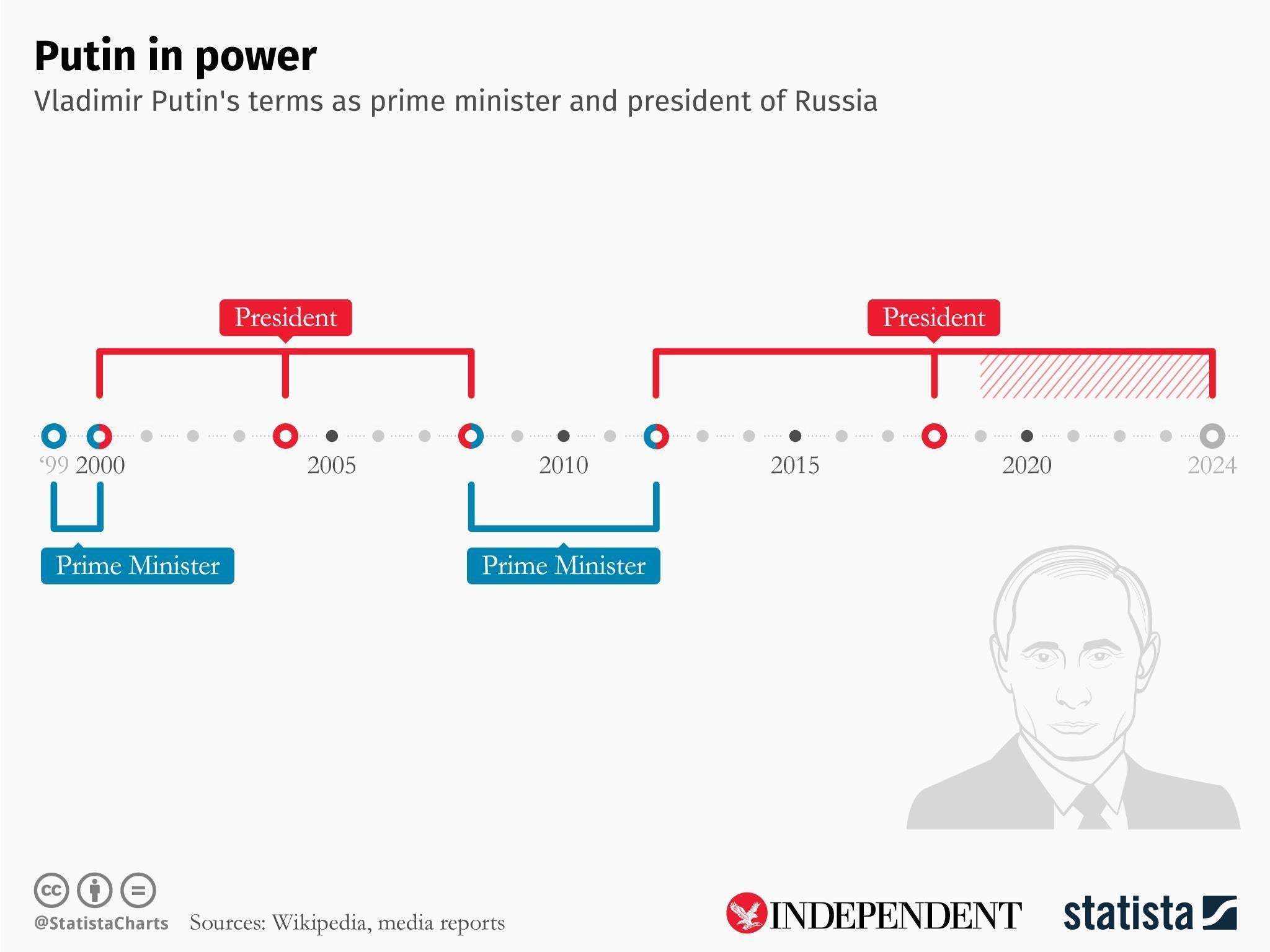
Later, ideas of “sovereignty” took over. First came the concept of “sovereign democracy”, introduced by the influential aide Vladislav Surkov, the signal that Russia was beginning to pivot away from the west. There was the 2007 hawkish speech at Munich that took on the world’s security establishment. Then, in 2014, came the controversial annexation of Crimea, and war in Ukraine, which brought other notions: isolationism and a sovereign economy.
“In 20 years, America saw Clinton, Bush Jnr, Obama and Trump, each time with a different policy outlook,” says Gleb Pavlovsky, a political consultant who worked in the Kremlin for the first 12 years of Putin’s rule.
“People think if you have one president, you have just one policy. It’s not like that at all. The first Putin term has nothing in common with the current one.”

Thou shalt not make unto thee any graven image
If Putin transformed Russia, Russia transformed Putin too.
Early Putin was unready for the big screen, and his team worried about his image. Putin had never played frontline politics before, and was not used to being the centre of attention. For a while, he even had problems finding a suit that fitted.
“Whenever he sat down, the back of his jacket would stand up,” Pavlovsky recalls.
It would take years before the spy was able to break out from the background.
Today’s Putin is the subject of a cult. There are T-shirts, mugs, knives, clocks, calendars and knickers all engraved with the bombastic leader’s image. They show the fix-it-all crisis manager. The all-action hero. The defender of the nation – shirt optional.
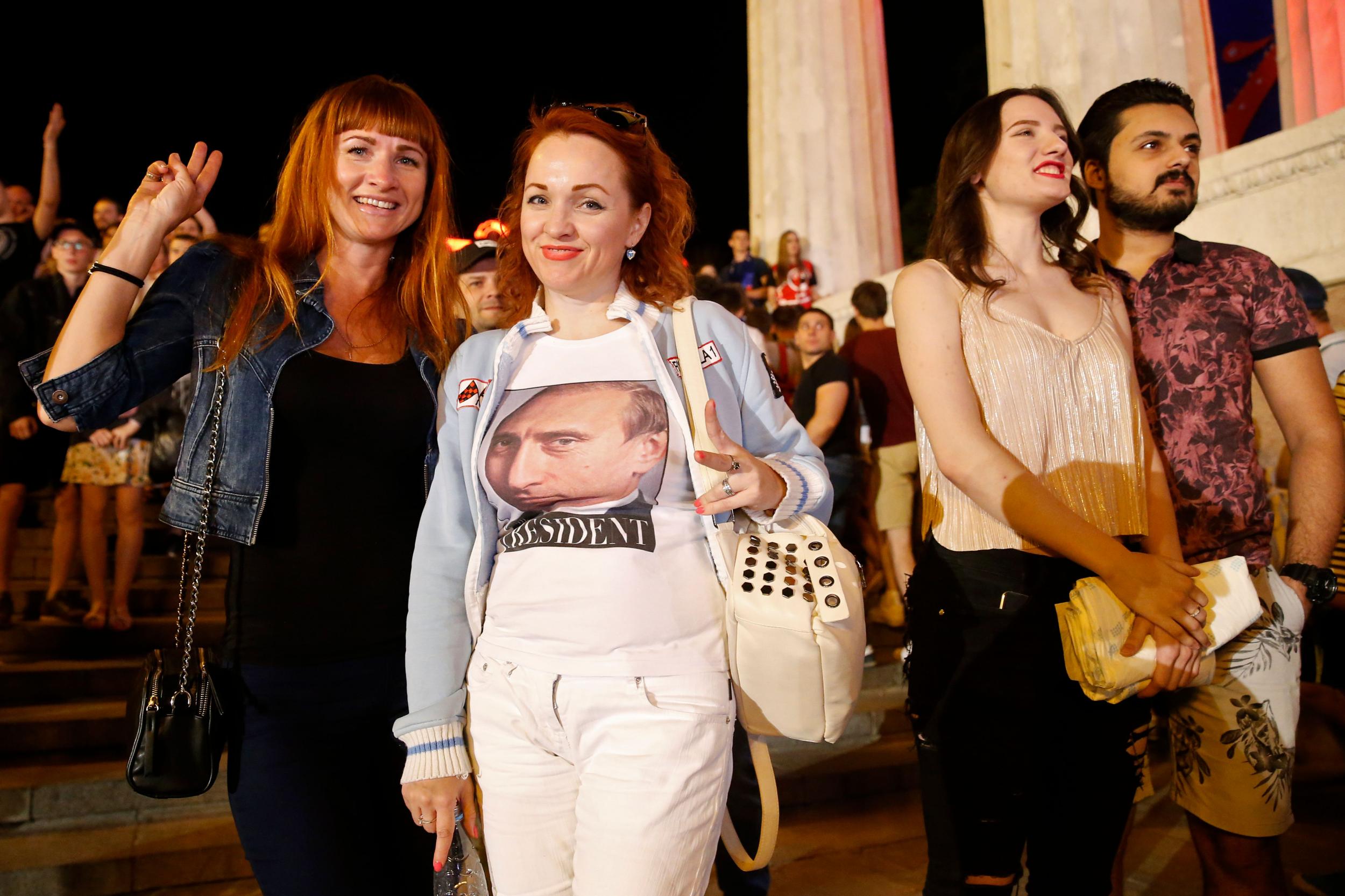
Putin’s strongman image has stayed robust even as the popularity of almost everyone under his command has collapsed.
There have been only three serious dents in his ratings: in 2005, following a poorly received reform of social benefits; in 2011, after rigged parliamentary elections; and since last year, the result of a pension reform opposed by 9 out of 10.
Despite the latest dip, Putin remains – overwhelmingly – the most popular politician in Russia. Only 20 per cent of the country has a highly negative opinion of his regime.
But there is no love or euphoria contained in such figures, cautions the veteran pollster Lev Gudkov. Russians are sober in their assessment of Putin, he says. They understand Putin represents the interests of oligarchs, the army and security bloc. They understand he is willing to clobber any opposition.
“That engenders neither love nor particular sympathy,” Gudkov says.
Thou shalt not take the name of the Lord thy God in vain
By the time Vladimir Putin came to power, there was already limited potential for liberal democracy. The first decade of post-Soviet life had been one of dizzying opportunities for some Russians. But for the vast majority, it was a nasty fight for survival.
Boris Yeltsin first laid the foundations for a move away from freedoms – handing executive power back to the security services, and the premiership, to the security agency’s boss, Vladimir Putin.
The former spook took that start and ran, accomplishing a targeted, complete and ruthless takeover of rights and civil society. In the mid-2000s, he amended automatic rights of public assembly, with rallies now requiring prior permission from authorities.
Restrictions followed almost to the point of absurdity. Russians were jailed for sharing stories on Facebook. In 2018, officials fined an unemployed carpenter for calling Putin a “fantastical f**khead,” the first use of a new law banning abuse of officials online.
But Putin’s crackdown on dissent was pushing at an open door, and it came with minimal resistance. After the turbulence of the 1990s, the Russian nation was urging for order, a strong hand and stability. The majority was ready to hold its nose in exchange for fuller fridges.
Buoyed by rising oil prices, Putin was able to keep his side of the bargain. He ended his second term with reasonable claims to enter the pantheon of Russia’s most successful leaders.
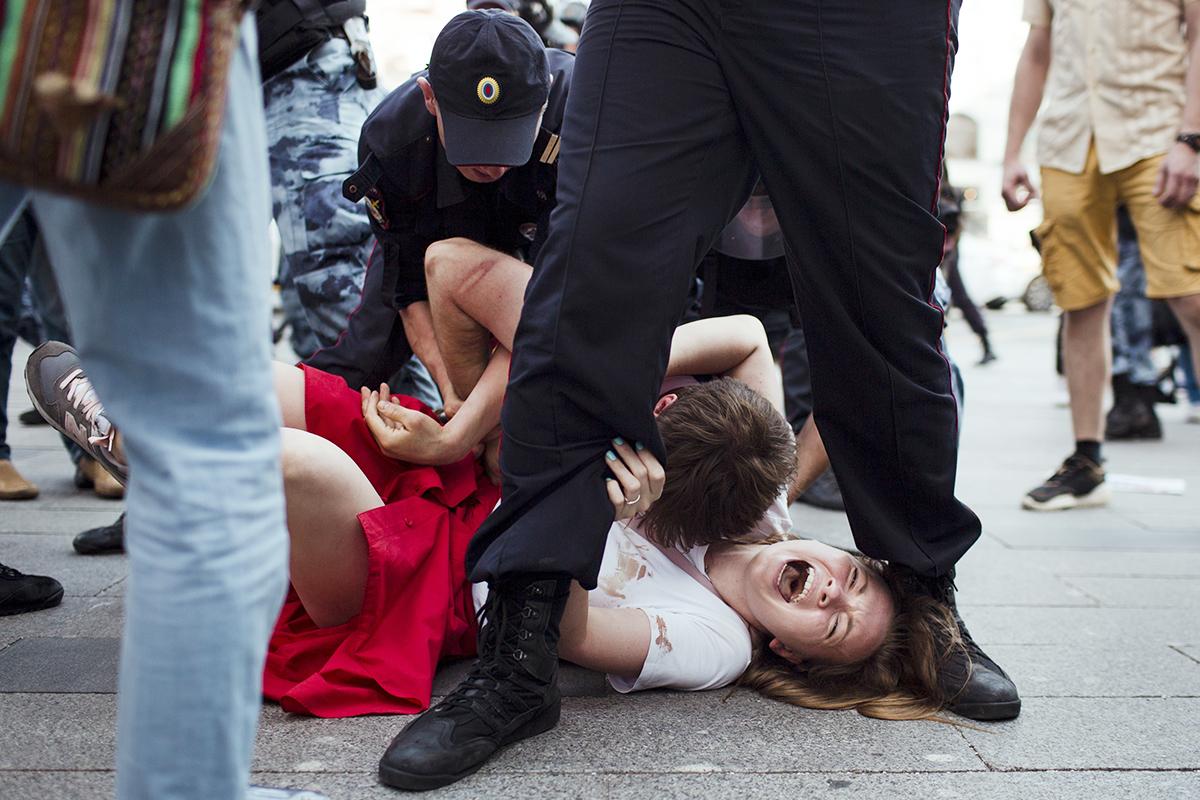
Remember the Sabbath day
With the majority of the country behind him, had Russia’s president wanted to change the constitution and stay on as president, he would have met little opposition. But Putin decided on an experiment and a successor. From 2008 he became prime minister, and Dmitry Medvedev president.
Konstantin Gaaze was an advisor in the Ministry of Agriculture at the time of the transition. He recalls how the entire government felt a sense of euphoria at pulling off a “massive project” – the first time that presidential power had been handed over without death or emergency.
“When it happened, it felt like a beautiful, strong, democratic victory,” he says. “We all thought we were just brilliant. We thought we had entered a different era, that everything from now on would be routine.”
In the eventuality, the Medvedev era turned out to be a dead democratic bounce. Almost as soon as he was elected as president, crisis hit. Economic instability quickly led to political instability and mass protests. Putin, spooked by seeing at least part of the elite switch to Medvedev’s camp, began to regret his decision to hand over the reins.
“For about a year and a half, Putin was a team player,” says Gaaze. “But by 2010 it was clear that he had begun fighting for power again.”
Putin’s return to the presidency in 2012 became a very personal victory; and his time out of the saddle a lesson about the dangers of handing over levers of power.
He spent the following years reversing almost everything that Medvedev had implemented.
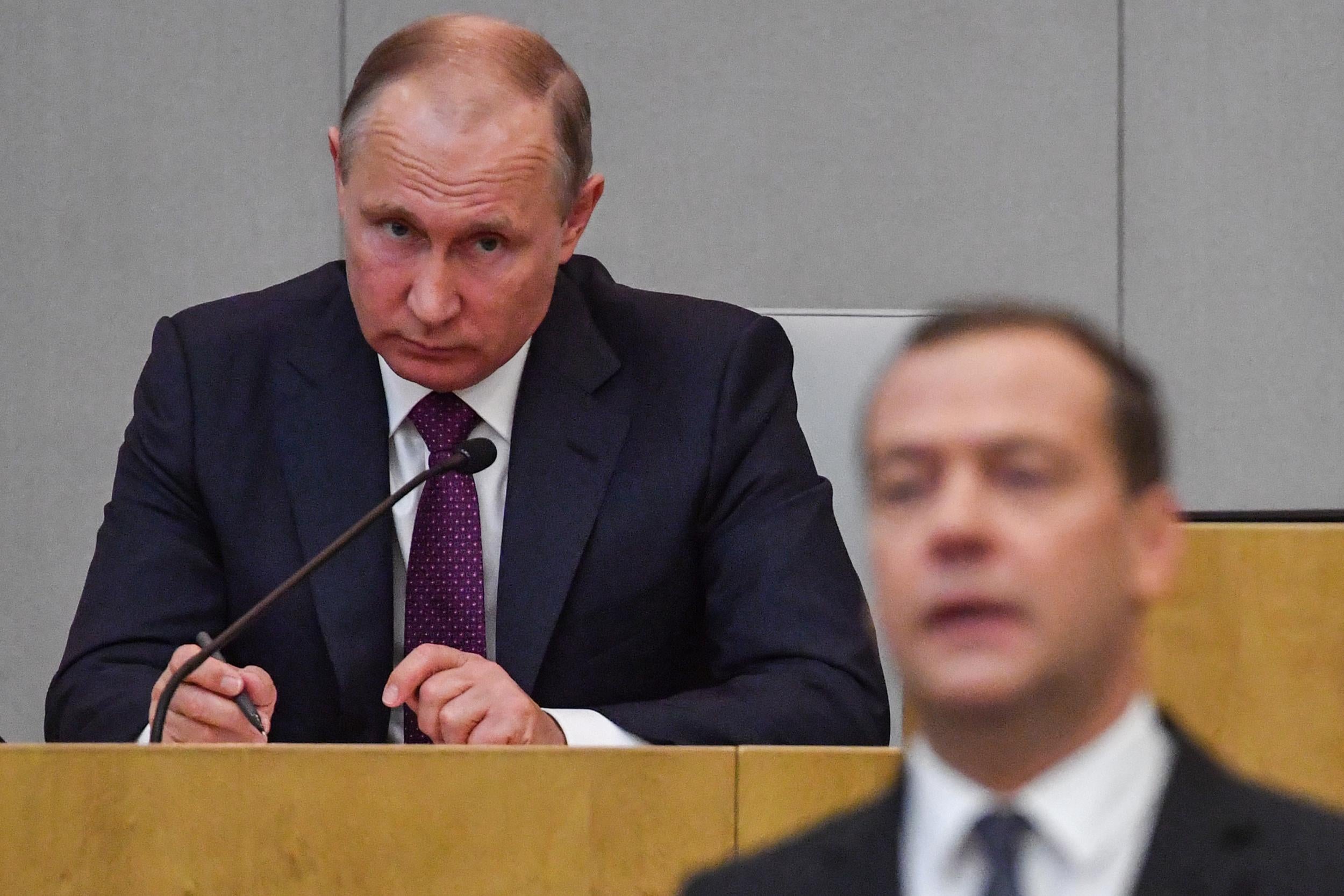
Honour thy father and thy mother
President Medvedev had sought to engage with Russia’s liberal elite and creative classes. He dabbled with Twitter and even dropped into Dozhd TV, Russia’s trendy opposition television station. When Putin returned, domestic policy swung completely the other direction.
“Putin saw a need to consolidate the masses around him,” says Tatyana Stanovaya, a non-resident fellow at the Carnegie Moscow Centre.
“So he sought a new engagement with what he saw as the democratic majority. This was the first time we began to hear discussions about the spiritual underpinnings of the nation, family values, and a patriotic wave that led to Crimea.”
From late 2011 on, Putin co-opted Russia’s moralist wing. There was a new cult of healthy living, and a clampdown on online porn. In 2013, the regime introduced Russia’s “Section 28”, controversial new legislation against the so-called “propaganda of non-traditional relationships” among minors. The results were unsurprising: hate crimes increased and were rarely investigated. In Chechnya, hundreds of gay men were tortured, and at least three killed, in two waves of targeted pogroms.
The Orthodox Church stood at the centre of this new conservative pact, with Patriarch Kirill rejoicing Putin as a “miracle of God”.
Not everyone was convinced. In March 2012, a group of four feminists took to the Cathedral of Christ the Saviour in Moscow to perform a “punk prayer” in protest. The Kremlin responded by sending them to a penal colony.
“Putin was an agent of the KGB, which destroyed the church, killed priests and sent believers to their deaths in camps,” says Maria Alyokhina, one of the Pussy Riot members to be imprisoned. “Now the Church is telling us that the KGB takeover of Russia is great. It’s like the Chief Rabbi praising Hitler.”

Thou shalt not kill
Ivan the Great famously used severed dogs’ heads to sniff out treachery. Putin’s Russia has a more sophisticated means to track its enemies. But in its approach to the tools of death, not everything, it seems, has moved on.
The gruesome murder of Alexander Litvinenko in November 2006 was a major inflexion point in Putin’s presidency. The former Russian spy’s agonising death at the hands of Polonium-210, one of the most radioactive isotopes known to man, was broadcast across the world from a hospital bed in London.
Ten years later, a British public inquiry agreed with the dying Litvinenko that it was “probable” the two Russian agents who killed him were acting in the knowledge of Putin himself.
Before it was always the dark side of power, a matter left unspoken. Now the Kremlin is less reserved about it. Death has become a much more overt instrument
Targeted killing on foreign soil was not new; the rebel Chechen leader Zelimkhan Yandarbiyev was assassinated in Qatar just two years earlier. What was different with the Litvinenko operation was how and where it was done, on the streets of the British capital. It marked the dawn of a new activism by Russia’s clandestine forces.
The appetite for risk reached new levels again in 2018 with the bungled nerve agent attack on double agent Sergei Skripal in Salisbury. Again, a convincing trail of evidence led back to Moscow – incriminating two Russian military intelligence officers, and exposing hundreds of other suspected Russian agents in the process.
“Over his leadership, Putin became much more relaxed in the way he treated killing operations,” says Carnegie’s Tatyana Stanovaya. “Before it was always the dark side of power, a matter left unspoken. Now the Kremlin is less reserved about it. Death has become a much more overt instrument.”

Thou shalt not commit adultery
As the botched operation in Salisbury showed, competence is not always an essential quality in Putin’s system; loyalty is often valued more.
Those who enjoy Putin’s trust have tended to rise highest. In 20 years, he appointed four of his former bodyguards as regional governors. He gave the security bloc a privileged role over domestic politics.
Putin’s former colleagues in the security services soon became the “new nobility”, says the author and security expert Andrei Soldatov. But later in his leadership, it was the army and its GRU military intelligence wing that rose in stature.
“Russia’s main security agency is now fulfilling the role of the Soviet KGB, controlling society with spy mania and the elite by addressed repressions,” Soldatov says. “But it’s the army that is beginning to play a more independent – and I would say ominous – role.”
Those who broke the unwritten loyalty codes found out fast.
In February 2003, tycoon Mikhail Khodorkovsky, then the richest man in Russia, dared to criticise the Kremlin’s policy on corruption – and during a televised meeting with the president. By the end of the year, Khodorkovsky was arrested. A year later, he was stripped of his main oil-producing assets.
The operation was part of war against the oligarchs, the group of men who had wielded unprecedented political power in Yeltsin’s court. One way or another, those who did not agree to voluntarily stay out of politics were forced out. The most excitable of them, Boris Berezovsky, was found dead at his British home in 2013.
But just as fast as old oligarchs fell, a new court rose. And most of them just happened to be on close terms with the main man.
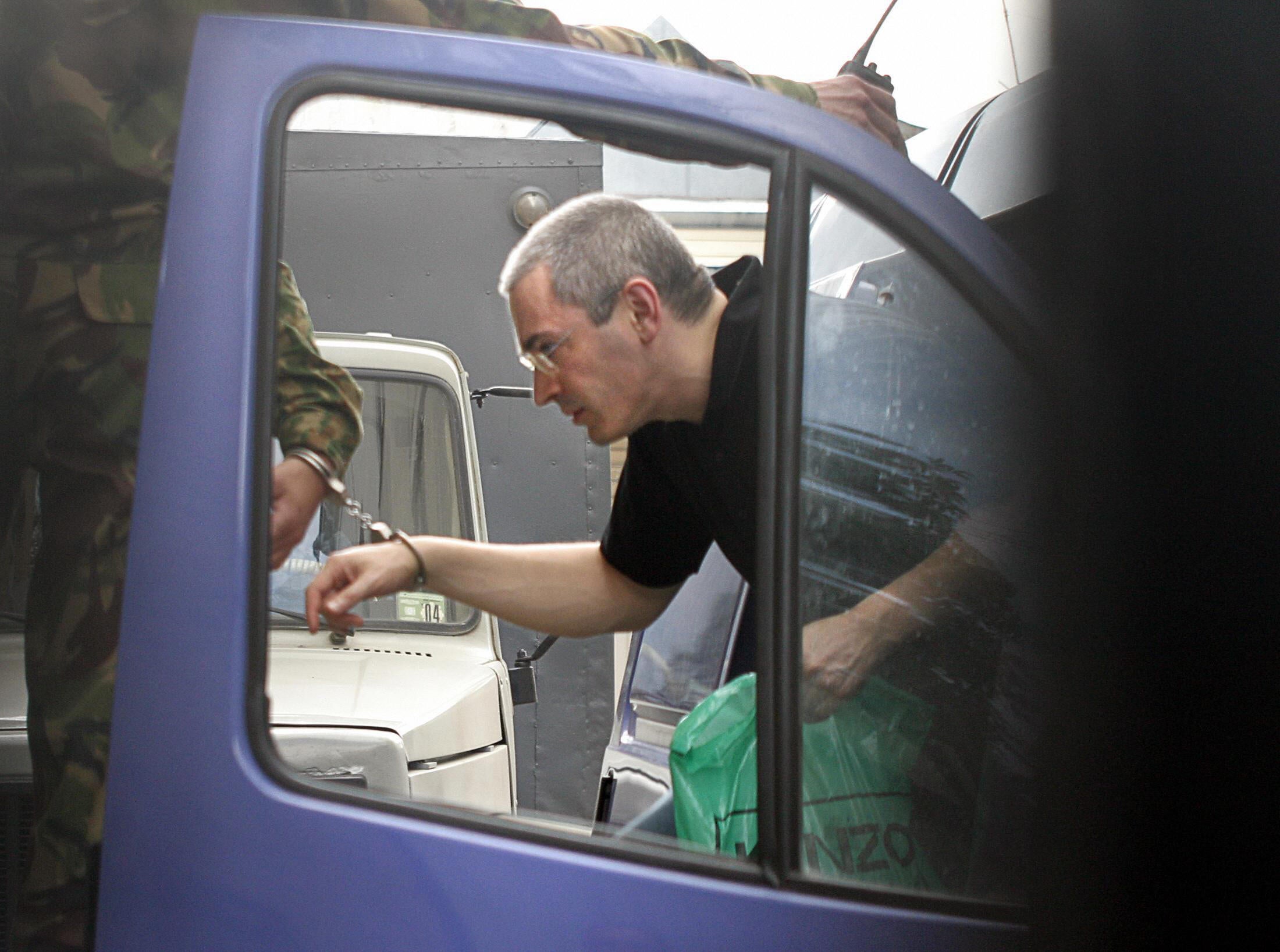
Thou shalt not steal
One of the undeniable achievements of Putin’s rule was a massive reduction in absolute poverty. That was achieved on the back of historically high oil prices, an early reformist agenda and several years of high growth. Over the 10 years from 1999 to 2008, Russian GDP increased by 94 per cent. Ten-dollar cappuccinos were not out of place.
Since then, economic performance has been more of a mixed bag, with an average of 1 per cent growth and a much more modest outlook. Last year, the level of poverty grew from 13.9 per cent to 14.3 per cent.
For all the words about battling corruption, it remains the regime’s Achilles’ heel. Paradoxically, transparency reforms carried out under Medvedev’s rule have given journalists and investigators the tools to expose the full extent of that corruption.
Opposition politician Alexei Navalny made waves with his investigations into the shady dealings of Putin’s closest lieutenants – from Medvedev himself to long-time associate Igor Sechin. But his reports had zero consequences for the personalities involved. Instead, Navalny found himself the subject of criminal investigations and regular jail terms.
“As soon as people realised that they were in Putin’s circle, they became corrupted,” says political consultant Gleb Pavlovsky. “Whether Putin himself is corrupt is not important. The majority of decisions are taken by his court – and his court is corrupt from head to toe.”
Thou shalt not bear false witness
The course of the Russian media over 1999-2019 has been one of tragedy and intermittent triumph.
In Putin, media outlets faced a relentless foe.
First, the regime came after mass television media, taking over ORT and NTV, two influential channels that had to varying degrees offered critical journalism. Then the regime came for print: first mass-market tabloids, later the elite broadsheets. There, the scheme was usually the same: forcing oligarchs to buy the titles, then using their other assets as leverage against the media business.
Beginning in 2011-12, Russian audiences came up against a new level of falsity and disinformation. The investigative journalist Aleksey Kovalev calls that moment a point of “no return”, and one that made him so concerned he decided to found his own fact-checking site, The Noodle Remover. The faked stories were often irrational, but camouflaged alongside authentic news. Many warped existing alt-right narratives, for example by claiming Sharia patrols were active on the streets in London.
By Ukrainian operations in 2014-15, the Kremlin operation had gone into overdrive, he says. “State media began framing all opposition to Putin as the work of spies. It provided conspiracy theory and falsehood non-stop – and in almost any language of the world.”
Even against this backdrop, islands of independent journalism managed to survive – most especially online. When Putin arrived, only 2 per cent of the population were internet active users. That figure is now over 80 per cent. Encouragingly, the Kremlin does not yet seem to have a coherent strategy about how to deal with the digital challenge.
Leonid Parfyonov, a star of Russian journalism, was one of the earlier victims of the media crackdown. His 2004 interview with the widow of an assassinated Chechen leader saw him pushed from his role as a news anchor. But today Parfyonov is back in business, his programme resurrected on YouTube.
“I haven’t worked on state TV for 15 years, but for me things are better than they have ever been,” he says. “For the first time, I’m producer and broadcaster. I’m my own TV channel. It’s quite something.”

Thou shalt not covet
While propaganda about Putin’s domestic success seems to be reaping fewer dividends than ever, Russians remain broadly receptive to narratives about re-establishing the nation as a great power.
Even parts of the Russian opposition are signed up Putin’s expansionism, says Andrei Soldatov. That paradox is not entirely new, he says, with imperialism ingrained in the Russian psyche: “In the 1970s and 1980s, many dissidents supported Kremlin policy in eastern Europe, even while positioning themselves as opponents of Stalinism in almost all regards.”
But patriotic education means that trend is set for the long term. “People are tired of Ukraine, and of Syria, but it doesn’t alter the fundamental things. We are still living with 19th century mentalities.”
Putin’s Russia will be remembered for its bloody wars – Chechnya, Georgia, Ukraine, Syria – and a reckless approach to the lives of civilians living there and, occasionally, flying in the skies above. It will be remembered for massive increases in military expenditure, which rose between 4.9 per cent and 16 per cent each year between 2010 and 2016, before tailing off somewhat.
But foreign policy was not always bad news. In 2004, Russian diplomats actually put one centuries-old conflict to bed, signing a long-awaited peace treaty.
The co-signataries? Native Indian tribes in Alaska.
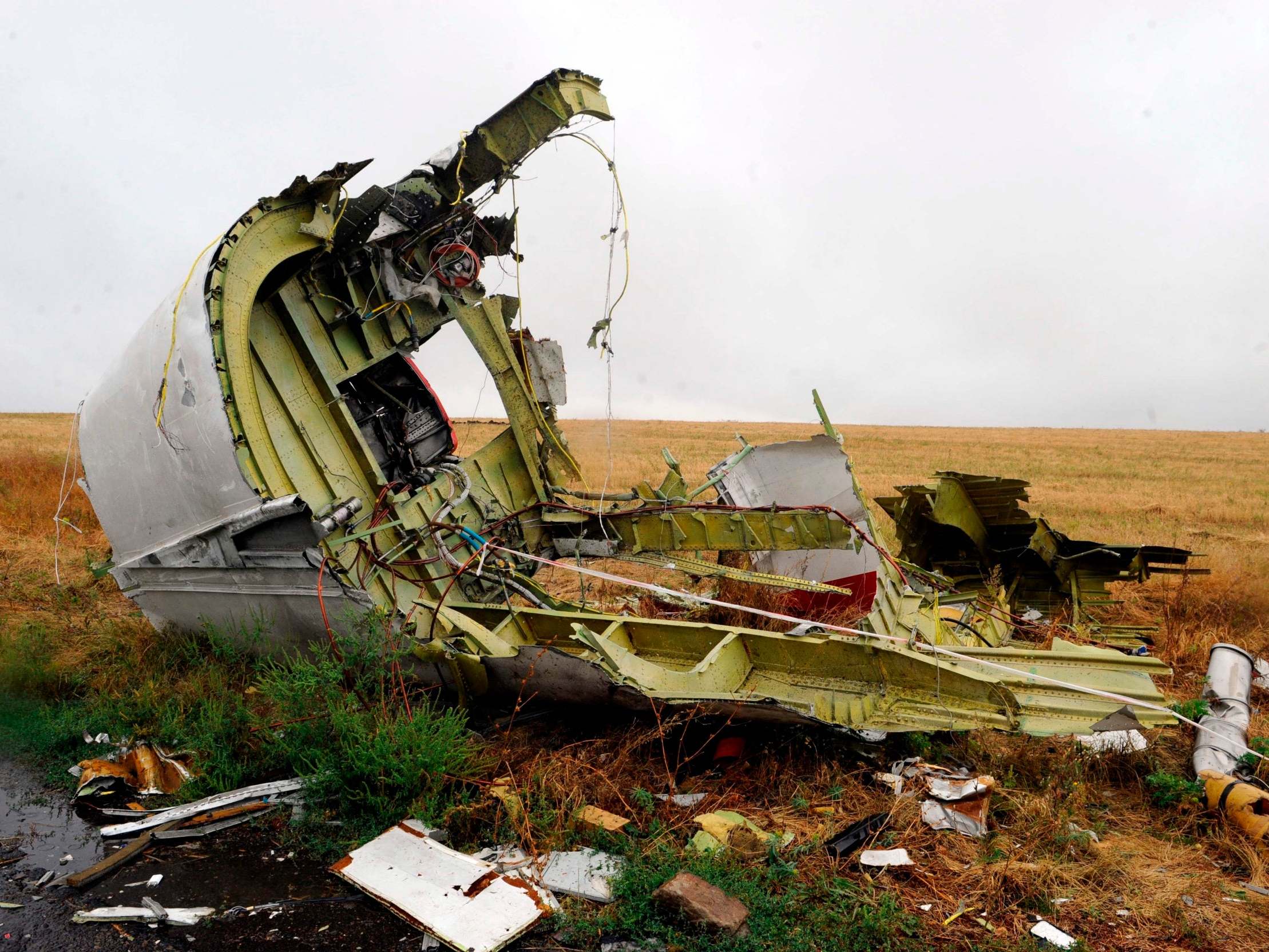
Russia without Putin
This summer’s protests for free elections – and the blunt politics that provoked them – suggest a certain level of crisis for the ruling system.
It remains to be seen how serious the situation is for Putin. Only part of the Kremlin’s repressive apparatus has been switched on, and few doubt his regime’s willingness to turn the dial up to 11. The protest movement is also largely limited to the capital, with disquiet in the regions easily localised.
But a conflict of some kind is clearly brewing.
Putin’s second successive term is up in 2024, and unless he changes the constitution he will not be able to stay on as president.
Already in power longer than Brezhev, the Russian president has denied himself an easy exit. His experiences in the sidelines over 2008-11 were not successful. And even if he were to want to leave, he would likely face opposition from his inner circle, who need him much more than he needs them.
Various possibilities have already been discussed: a constitutional change that would see real power transferred to parliament and Putin installed as an emboldened prime minister; a model chosen by Kazakh “father of the nation” Nursultan Nazarbayev, with Putin as head of the country’s security council; or, most riskily of all, Putin installed as head of a new unified super-state with Belarus – this is a challenge unlikely to be welcomed in Minsk.
“We are used to believing that regimes change most fundamentally at the start,” says Konstantin Gaaze. “But with Putin’s Russia, things are happening the other way around. The last five years have seen the most fundamental changes the system has seen.”
“The biggest shift is about to play out right in front of our very eyes,” he says.
This article was originally published in August 2019
Join our commenting forum
Join thought-provoking conversations, follow other Independent readers and see their replies
Comments
Bookmark popover
Removed from bookmarks